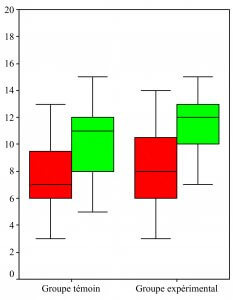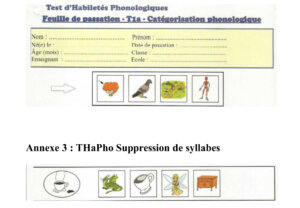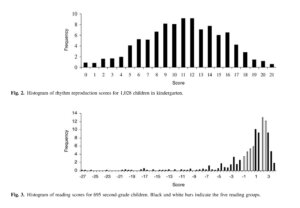The impact of music training on inhibition control, phonological processing, and motor skills in kindergarteners: a randomized control trial
This study explores how music training impacts the development of inhibition control, phonological processing, and gross and fine motor skills in preschoolers. In a randomized controlled trial, 160 kindergarteners in a music programme, a motor programme, or a control group were examined. Children in the two experimental conditions took part in 19 weekly 40-minute sessions. At pretest and post-test, inhibition control and phonological processing were measured with two subtests from the NEPSY-II. Gross and fine motricity were assessed with the BOT-2 Short Form. Post-test results showed that children in the music condition improved significantly on automatic response inhibition. Phonological processing skills did not differ significantly between the two experimental conditions, but the music condition produced significant improvements over control. These findings corroborate previous evidence that music training contributes substantially to develop executive function and phonological awareness in preschoolers.
Acknowledgements
The authors thank Aimée Gaudette-Leblanc, Véronique Gaboury, and Delphine Fargues for their valuable contributions to this study. The team also thanks Julie Raymond and Jean-Daniel Guay for helping to prepare the manuscript. We are also grateful to the commission scolaire des Patriotes (Québec) and the administration and staff of the École de la Passerelle in Chambly (Québec) as well as all the research assistants.
Disclosure statement
No potential conflict of interest was reported by the author(s).





